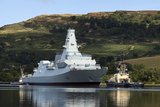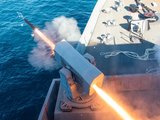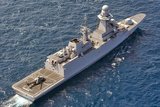EfficientFlow project receives EU funding
A new Sea Traffic Management (STM) project called EfficientFlow has received $5.3 million European Union (EU)funding from the Interreg Central Baltic programme.
The EfficientFlow project covers many aspects of STM in the ports of Rauma, Finland and Gävle, Sweden. It also covers STM-enabled traffic flow management for the vessels that sail through the archipelago between Sweden and Finland. The project will run from 2018 to 2020.
The EfficientFlow project is expected to reduce the need for manual information exchange and improve processes and practical application of new information and communication technologies tools. The goal is to increase situational awareness among operators in the ports and in the sea corridors, create more connected ports and flexible route planning and improve port-hinterland information exchange. It will also optimise port operations, improve just-in-time processes, save fuel, reduce waiting times, improve planning horizon and berth productivity, and increase flexibility in the case of unexpected events.
The risk of misunderstanding and misinterpretation of information will be reduced, contributing to the faster movement time of goods in the corridors. The results achieved from the project will be transferrable to other ports and countries in the Central Baltic area.
Project partners include the Swedish Maritime Administration (SMA), Satakunta University of Applied Sciences, Port of Rauma, Port of Gävle and the Finnish Transport Agency.
Magnus Sundström, head of research and innovation at the SMA, said: ‘We truly appreciate that the flow management part of the STM concept can be tested in a live test bed. Safety will increase even more when ships and VTS Turku work with STM-enabled tools. We also appreciate that STM will be further tested and implemented in ports in the Central Baltic Region.’
More from Naval Warfare
-
![Turkey targets Italian market with strategic partnership on USVs and hybrid platforms]()
Turkey targets Italian market with strategic partnership on USVs and hybrid platforms
Havelsan, VN Maritime and Piloda Defence will collaborate to develop and integrate a range of maritime solutions with a view to secure a first procurement contract in Italy in the first half of this year.
-
![Could Asia and the Middle East offer growth opportunities for Italy’s Fincantieri?]()
Could Asia and the Middle East offer growth opportunities for Italy’s Fincantieri?
Export campaigns for Fincantieri’s submarines and frigates are central to the company’s ambitions as billions of dollars in unawarded contracts come into focus.
-
![US Navy to develop an undersea networking capability to support UUV operations]()
US Navy to develop an undersea networking capability to support UUV operations
The NEREUS project aims to enhance and expand the US Navy’s existing communications systems, enabling crewed/uncrewed seabed and subsurface missions.
-
![How the Hedge Strategy will impact the US Navy’s future capabilities]()
How the Hedge Strategy will impact the US Navy’s future capabilities
The US Navy Hedge Strategy is intended to provide a lethal, modular and cost-effective fleet while accepting Washington’s fiscal and industrial constraints.






















